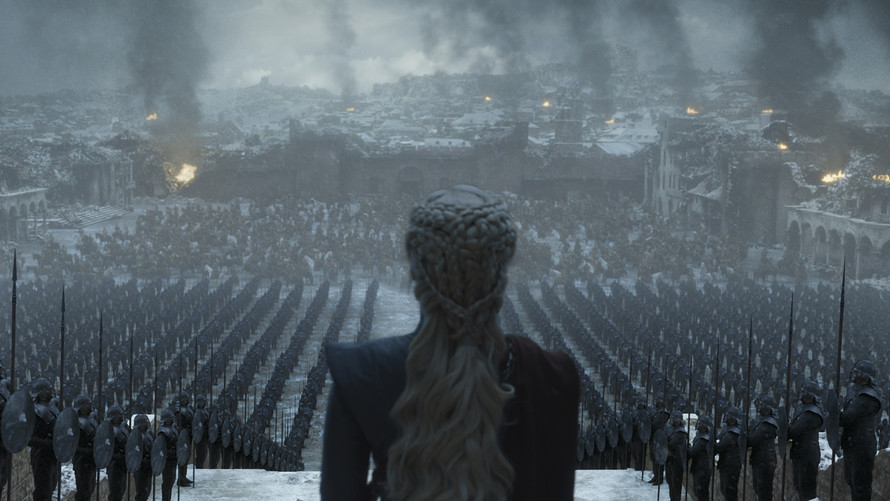What do we say to our bosses the Monday after “Game of Thrones” ends?
Apparently, “Not today.”
An estimated 10.7 million Americans will skip work the morning after the feature-length series finale of the HBO juggernaut airs on Sunday night, according to The Workforce Institute at Kronos, either by calling in sick, taking a last-minute personal or vacation day, or making some other arrangement. That’s almost as high as the estimated 17 million people who were sidelined the Monday after the NFL’s Patriots beat the Rams in Super Bowl LIII in February.
Related: An estimated 17 million people may miss work the Monday after the Super Bowl
The think tank’s “Absence Is Coming” survey conducted by The Harris Poll questioned 1,090 adults about the long-awaited ending to the television adaptation of George R.R. Martin’s bestselling book series, and found that one-third plan to tune in to finally learn which ruler will end up on the Iron Throne, and about 22% plan to skip work Monday. The researchers then extrapolated that percentage to the 143.1 million employed U.S. adults, according to the 2010 Census, to come up with the 10.7 million figure. And 5.8 million employees who typically work Sunday nights also plan to use a vacation day, sick day or personal day to watch the finale live.
 Courtesy of HBO
Courtesy of HBO
What’s more, the poll predicts that approximately 27.2 million people who plan to watch the “Game of Thrones” finale live will either miss work completely the next day, or arrive late, work remotely, be less productive than usual, or suffer some other impact on their work obligations come Monday. Indeed, fans across the globe have confessed to taking the day off already on Twitter.
This survey also estimated that watching the current season has affected the attendance and/or performance of 20.4 million employees, and that 35.8 million have wasted at least one hour of company time each week talking about, reading about or posting online about “Game of Thrones” since the final season premiered on April 14. After all, fans have been invested in the HBO series for the past decade — and in Martin’s novels for almost 23 years. And now their watch is almost ended.
Executive coaching firm Challenger, Gray & Christmas Inc. has calculated that the distracting tales of dragon queens, ice zombies and rogue Starbucks cups from “Thrones” have cost employers $3.3 billion in lost productivity. That’s less than Super Bowl Monday 2019’s sacked productivity (worth $4.4 billion) and Michael Cohen’s congressional testimony ($3.8 billion), and far below the $13.3 billion that NCAA March Madness is expected to cost employers, but it’s still a king’s ransom. Indeed, the Robert Half consulting firm has found that 30% of workers are “wasting the work day away” distracted by socializing and chatting, while one in four confess to indulging in non-business related internet use.
While reviews of the final “Thrones” season have been mixed – with many longtime fans feeling burned by the two most recent episodes in particular (which have scored the series’ lowest episode rankings ever) and a Change.org petition calling on HBO to remake the final season with different writers drawing almost 400,000 signatures – “Thrones” is still posting record audience numbers. The penultimate episode “The Bells” drew an all-time series and HBO viewership high of 18.4 million views when factoring in traditional live viewing, replays and streams, topping the previous record set by “The Long Night,” about the long-awaited Battle of Winterfell, last month.
Some industry insiders are even questioning whether the 80-minute series finale on May 19 could even crack 20 million (when factoring in views across all platforms) when the world finally learns the winner of the game of the thrones.
See: This chart shows how many ‘Game of Thrones’ viewers are hating this season
So expect to see lots of physically and emotionally exhausted employees ‘dragon’ themselves into work on Monday — if they come in at all.




